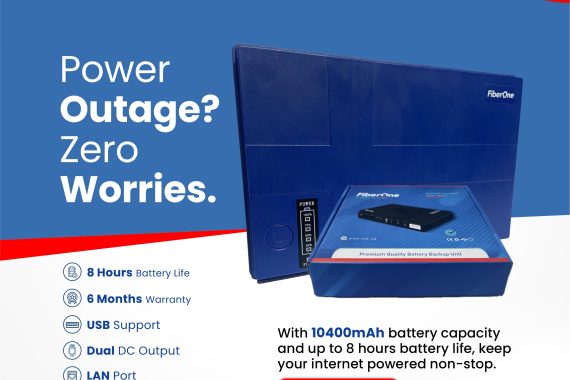- In today’s hyper-connected world, it’s easy to feel overwhelmed by constant notifications, emails, and social media updates. It is almost like an addiction, as you mindlessly scroll through your phone for hours without a break. But are you the only one facing such challenges? Research shows that about 61% of people admit they’re addicted to the internet and their digital screens. Research also has it that Worldwide, people spend an average of 6 hours and 40 minutes per day on screens.
That’s a significant amount of time. But why is this the case? Experts found that heavy smartphone use can cause changes in your brain. Every scroll or swipe sends a hit of dopamine to the same areas of your brain that respond to addictive and dangerous drugs like cocaine. smoothly.
It is not surprising that constant connection can take a toll on your quality of life and overload your senses. That’s why taking a break from your numerous social media apps and some time away from screens could be good for your mental and physical health. As we spend more time on our devices, the concept of a digital detox has become increasingly relevant.
But what exactly is a digital detox, and why is it so important?
The Need for Digital Detox
Research shows that excessive screen time and social media usage can lead to increased stress, anxiety, and a decline in productivity. Studies reveal that the average person spends more than seven hours a day staring at a screen, contributing to physical and psychological strain. Symptoms such as eye strain, sleep disturbances, and a constant feeling of being “on” are clear indicators that it might be time for a digital detox.
Signs You Might Need a Digital Detox
- Anxiety Without Your Phone: You feel anxious or stressed if you can’t find your phone.
- Constant Checking: You feel compelled to check your phone every few minutes. Negative Emotions
- Post-Social Media: You feel depressed, anxious, or angry after spending time on social media.
- Preoccupation with Social Metrics: You are preoccupied with the likes, comments, or shares on your social posts.
- Fear of Missing Out (FOMO): You’re afraid you’ll miss something important if you don’t keep checking your device.
- Disrupted Sleep Patterns: You often stay up late or get up early just to use your phone.
- Difficulty Focusing: You struggle to concentrate on one task without the urge to check your phone.
Benefits of Taking a Digital Detox
Reducing your reliance on digital devices or taking intentional breaks from them can significantly enhance your quality of life in several ways:
- Experience Greater Calm and Contentment: Studies show that scheduled breaks from smartphones and other digital devices can reduce stress levels. This practice allows you to be more present and attentive to your surroundings.
- Increase Productivity: Activities like scrolling, liking, and posting on social media can consume a significant amount of time, detracting from your responsibilities. By setting your phone aside, you can better focus on tasks that need to be completed.
- Enhance Self-Perception: Social media often encourages constant comparison with others, which can negatively impact self-esteem. Reducing your phone usage can help improve your self-image and confidence.
- Improve Sleep Quality: Your body releases melatonin, a hormone that promotes relaxation and sleep, at bedtime. However, using your phone right before bed can keep your brain alert and delay melatonin release, leading to poor sleep. Over time, lack of sleep can adversely affect your mood and health. A digital detox can help regulate your sleep cycles and improve overall sleep quality.
Strategies for Implementing a Digital Detox
- Starting a digital detox doesn’t have to be daunting. Here are some practical tips to help you begin:
- Reflect on Your Emotions During Phone Use: Be mindful of how you feel when using your phone. Understanding your relationship with your device is crucial. Ask yourself why you’re using your phone at various times. Is it out of boredom? Work necessity? Fear of missing out? Does it make you feel better or worse? Identifying these emotions can help you manage your phone use more effectively. If it’s affecting you negatively, try reducing your daily usage.
- Schedule Breaks from Your Phone: If you notice obsessive behavior, set specific time intervals to check your phone, such as every 15 or 30 minutes. Keep your phone away during meals to focus on your surroundings. If resisting is hard, place it in a different room or out of easy reach. You can also set specific times to avoid phone use, like during walks, social gatherings, or after a certain hour at night.
- Use Apps to Monitor Your Usage: Track your daily phone usage with built-in features or apps. Some apps can block access to social media for certain periods or provide detailed reports on your usage patterns. This helps limit phone reliance and regain control.
- Disconnect Before Bedtime: Since phone use can disrupt sleep, try disconnecting or turning off your phone before bed. Set a specific time, like 9 or 10 p.m., to unplug, helping you establish a bedtime routine and improve sleep quality.
- Turn Off Notifications: If you constantly respond to every notification, consider turning them off in your phone settings. This reduces the urge to check every alert. You can also use the “Do Not Disturb” function.
Overcoming Challenges During a Digital Detox
It’s common to face challenges during a digital detox, such as the fear of missing out (FOMO) or the necessity of technology for work. To overcome these obstacles, try the following:
- FOMO: Remind yourself that missing out on some updates is okay and focus on the quality of your real-life interactions.
- Work Dependencies: Schedule specific times to check work emails and ensure you communicate your availability to colleagues.
Maintaining Balance Post-Detox
After completing a digital detox, it’s crucial to maintain a balanced relationship with technology. Here are some tips to help you sustain healthy digital habits:
- Mindful Usage: Be conscious of your screen time and the content you consume.
- Regular Tech Breaks: Take short breaks throughout the day to step away from your devices.
- Digital Hygiene: Regularly declutter your digital spaces by organizing files and unsubscribing from unnecessary notifications.
The Role of Technology in Supporting Digital Detox
Interestingly, technology can also aid in your digital detox journey. Several tools and apps are designed to monitor and limit screen time, promote mindfulness, and encourage breaks. Wearable technology, like smartwatches, can track your digital habits and remind you to take breaks.
Conclusion
Finding balance in a hyper-connected world is essential for our well-being. By taking steps towards a digital detox, you can improve your mental clarity, enhance your personal relationships, and reclaim your time. Start your digital detox journey today and experience the benefits of a more balanced life.




